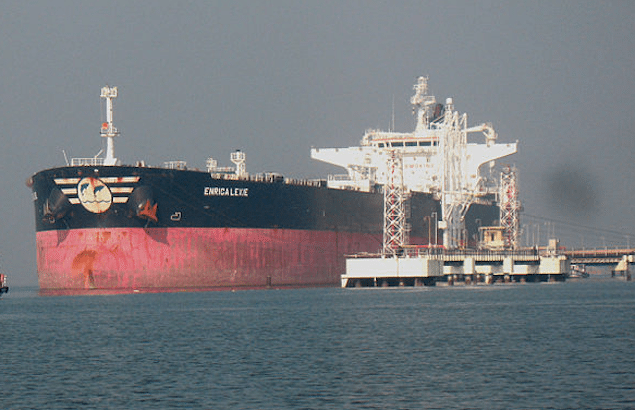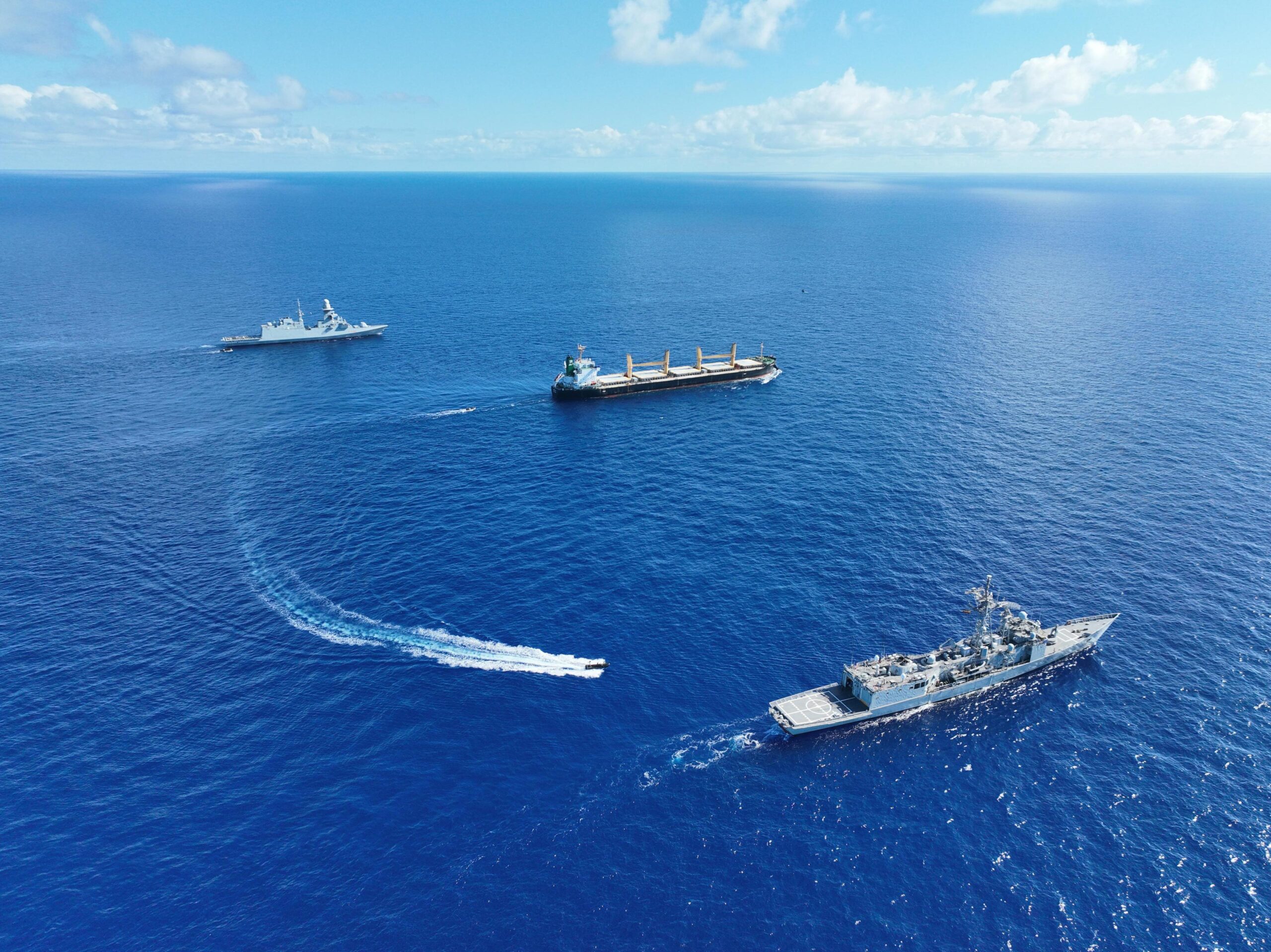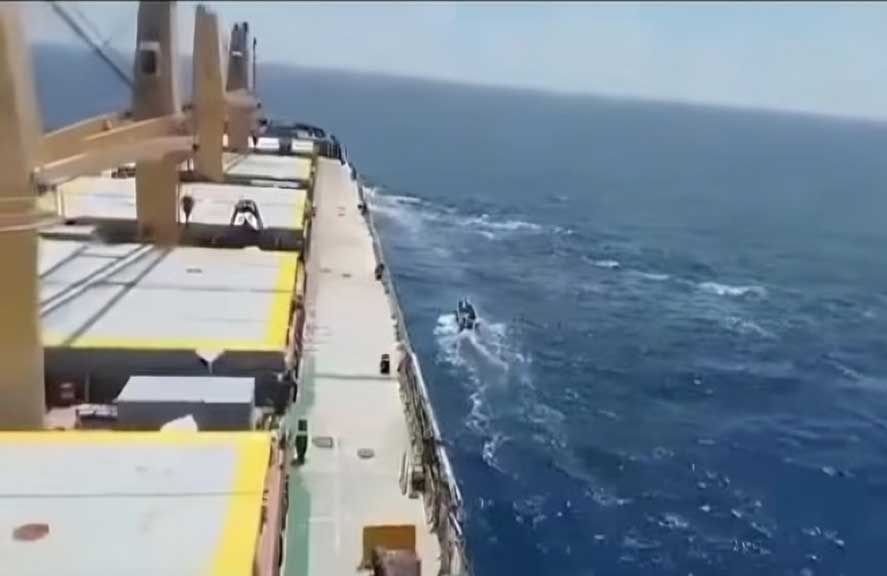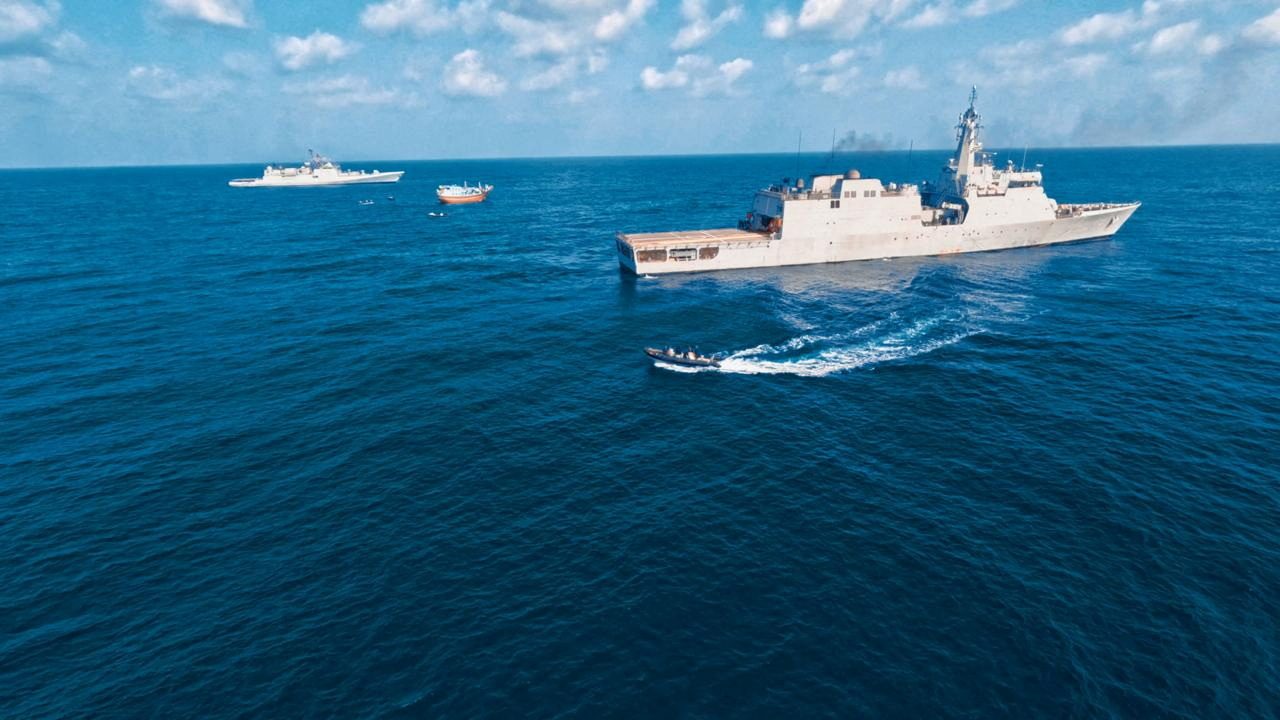Enrica Lexie in Kochi, India
UPDATE (Mar. 21): Italian Marines Agree to Return to India to Stand Trial, Diffuse Diplomatic Row
By John A.C. Cartner, Special to Piracy Daily
Amidst all the head-wagging and hand-gesticulating marking the anti-pirate controversy between the Indian and Italian governments and the laws, we should step back and look at both the shorter and longer implications of the matter.
Above all laws there is the Law of Unintended Consequences, LUC, — which is alive and well. LUC, pronounced as it is spelled, has been formulated in many ways. It says generally that from a complex system it is impossible to predict all future states of that system. That means that we do not know enough about how the system works to make it fully determinative. Hence law, a complex system, is not fully determinative and is subject to the LUC.
We have worked out a rough and ready system to deal with these consequences in our courts. However, courts are not seers and the consequences continue to occur. Viva la difference!
So it is with the Italo-Indian dispute. There is a framework within which this dispute principally falls. It is the United Nations Convention on the Law of the Sea 1982, also awkwardly called UNCLOS 1982. It has one of the few definitions of piracy to which most agree. It also pretty well says what laws apply in the seas adjacent to a state and what laws apply aboard a ship and why.
So in the short-term, what’s the problem? Sorting the mess out. Could UNCLOS 1982 have predicted such a situation? While we are sorting we can say that it does so not very well.
Here is the problem: The UNCLOS 1982 is quite clear that coastal state law prevails within the waters defined by the Convention except International Water which is water under no State’s jurisdiction. By implication it says what criminal laws prevail on a vessel transiting jurisdictional waters innocently by relating the passage to the crime as to those of the coastal state.
If that is the case, then coastal state laws apply. It also defines innocent passage and says that ‘any exercise or practice with weapons of any kind’ by a foreign ship within jurisdictional waters shall be considered to be ‘prejudicial to the peace, good order or security of the coastal State’ and the vessel making the passage is therefore not innocent permiting the coastal state to act.
Refreshing the facts in the Indo-Italian dispute, Italian Ministry of Defense troops, privately contracted out, fired upon and killed fishermen thought to be pirates on waters wherein Indian criminal laws prevailed. LUC has now taken over. There is no mention in the Convention as to whether or not those who appear to be pirates may be defended against. The piracy definitions require an act of piracy, carefully worded as to place and kind, before piracy can be concluded.
The Indian position: no act, no piracy. The Italian position: so what? Piracy and all that surrounds it is a universal crime and Italian sovereign immunity prevails and you Indians may try but you may not convict unless we agree and, even if you do, we do not have to return our people to you for your juridical acts.
So where lies the fault? Indians? No. Italians? No? Convention? Yes. It failed to foresee what might happen. LUC has prevailed. The Indians read the Convention for what it says – to a point. However, the Indians do not make any extensions of the language leading to reasonable expectations of piracy and reactions to it. The Italians rely on the ancient principles established by the Treaties of Münster and Osnabrück of 1648, ending the European religious wars. These treaties are the bedrocks of sovereignty.
In the longer term, however, we must revisit the implications of arming vessels. Article 19 of UNCLOS 1982 defines innocent passage wherein ‘any exercise or practice with weapons of any kind’ by a vessel not of jurisdictional registry is ‘prejudicial to the peace, good order or security of the coastal State.’ Therefore such passage is not innocent. If the passage is not innocent the coastal state may exercise its lawful powers of defense.
But what is arming a vessel? Are small arms naval weapons? Probably not under most states’ prevailing laws. Further, under those self-same laws there is no universal definition of small arms. Is naval artillery, then, arming a vessel? Most probably, however, the definitions of the old naval treaties describing gunnery are not apposite to the modern age of much more powerful and intelligent weapons which blur the distinction between small arms in size and naval weapons in power.
Curiously, each of the above questions is relatable to letters of marque and reprisal about which I have written in this journal. Privateering, wherein a person holds a license from a sovereign, allows the arming of persons, assumedly with small arms, and vessels, assumedly with naval artillery, all to do the sovereign’s bidding. A letter of marque is issued to a vessel, not to a person, and implies that vessel arming is allowed but not necessarily expressly saying personal arming is allowed. It would seem that after nearly a millennium of this law we could craft a solution.
I do not see it coming any closer except by precisely defining the energy transmitted to the target of a weapon and drawing a bright line as to what comprises small arms and what comprises naval artillery. After all, we carefully describe navigation lights in highly technical annexes to the collision rules. We can do the same with weaponry. We probably ought to devise some new terms while we are at it to make the definitions more nearly precise. And while we are defining we can also try to come up with something that deals with reasonable expectations of imminent piracy.
Perhaps, too, the disputants can look ahead and see that the Italian marines are culpable under the laws of tort/delict and wherein there may be Italian criminal negligence. After all, most states have laws supervening sovereignty in some cases so that some criminal laws may be exercised or civil action may be taken for damages against a government.
About the Author
John A C Cartner is an unrestricted master mariner (US) and maritime lawyer practicing in Washington, DC and practising in London and is the principal author of The International Law of the Shipmaster (2009). He can be reached at [email protected]. © 2013 John A C Cartner, all rights reserved.
Unlock Exclusive Insights Today!
Join the gCaptain Club for curated content, insider opinions, and vibrant community discussions.

 Join The Club
Join The Club













